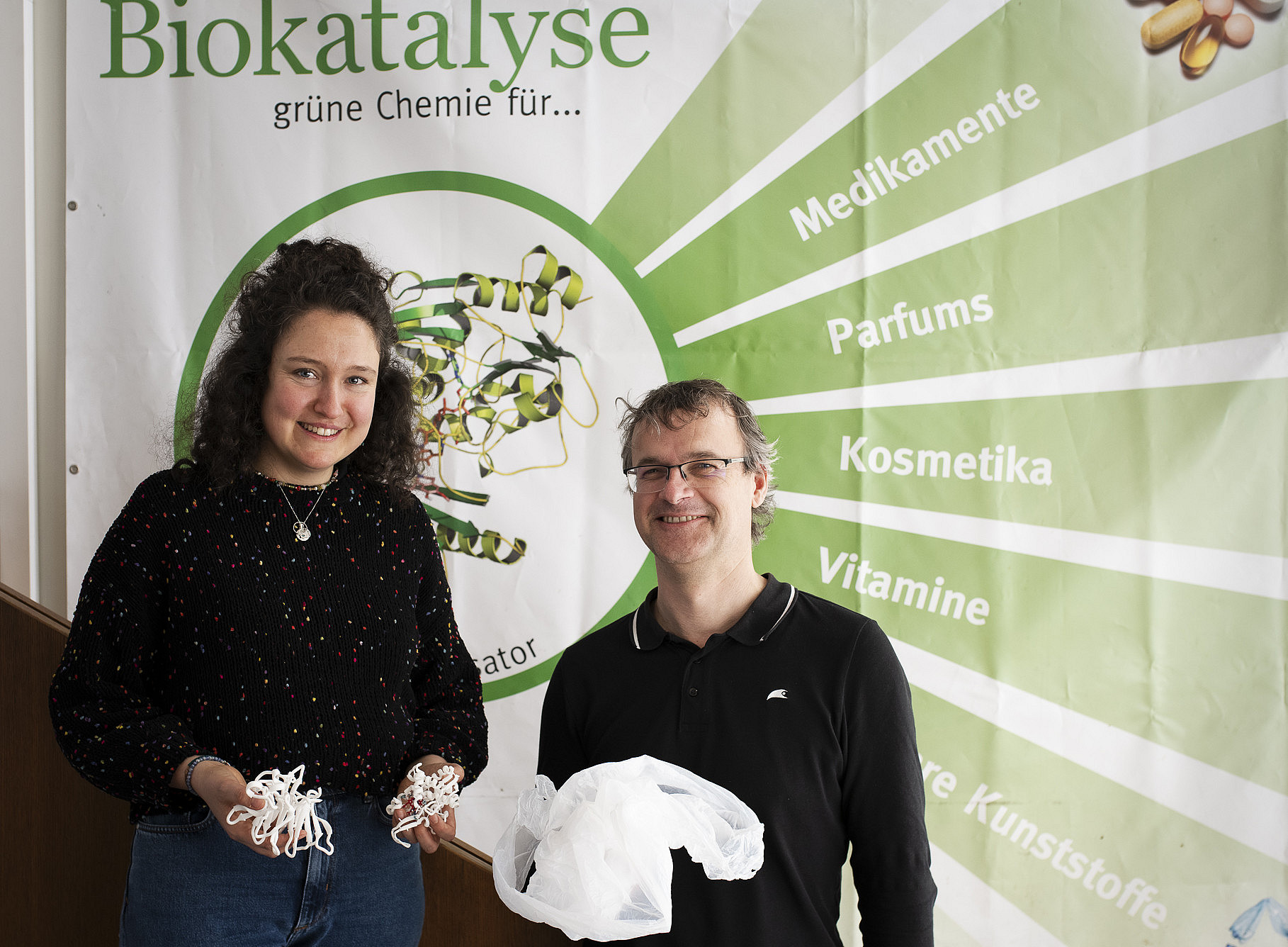Europe needs new renewable resources for the production of important chemicals in order to make the transition to a petroleum-free society. But how can biomass be used to produce plastics that are similar to those made from crude oil but are biodegradable? In the EU project "Biobased Value Circle", researchers and companies from all over Europe are working on new environmentally friendly processes, including Wolfgang Kroutil's research team at the Institute of Chemistry.
One member of the team, PhD student Klara Bangert, has now achieved a breakthrough in the production of bioplastic building blocks. Bioplastics can be used for packaging, for example, as these are often made from petroleum products and are often harmful to the environment.
Enzymes from bacteria
The key lies in enzymes, which are proteins that enable chemical reactions. Experts call this biocatalysis. With the help of bacteria, she was able to obtain an enzyme that enables the production of substances for more stable and better forms of bioplastics. This was previously not possible using conventional chemical processes. "The materials currently used for bioplastics are often not ideal," explains Bangert. "That's why we looked for variants that are better suited for use in industry."
Her supervisor Wolfgang Kroutil explains: "In our research group, we have a very strict definition of bioplastics. Both the base materials and the end product must be 100 per cent biodegradable."
Bangert focussed on renewable base materials. She found a suitable source in coconut oil. "However, chemistry has not yet come up with a solution to turn the fatty acids in the oil into the plastic building blocks," says the researcher. And so she took biology as her model, specifically the bacterium Exiguobacterium, which uses a special enzyme to modify the fatty acid.
More stability
In this way, the young scientist was able to show that this enzyme is also suitable for the production of base materials for more stable bioplastics. The only other ingredient she needs is hydrogen peroxide, which is used for bleaching hair, for example. "The only residual substance that remains after the process is water," explains the chemist.
Her research now serves as the basis for further projects, explains Kroutil. "So far, we have already managed to produce this starting material for new bioplastics in the gramme range. Now we want to show that this is also possible on a larger scale. To do this, we need even better enzymes, which we now need to discover."
The results were achieved in collaboration with national and international companies such as B4Plastics, bisy and Enzyan Biocatalysis and published in the international, high-ranking journal "Green Chemistry".
(https://pubs.rsc.org/en/Content/ArticleLanding/2024/GC/D3GC04593E
